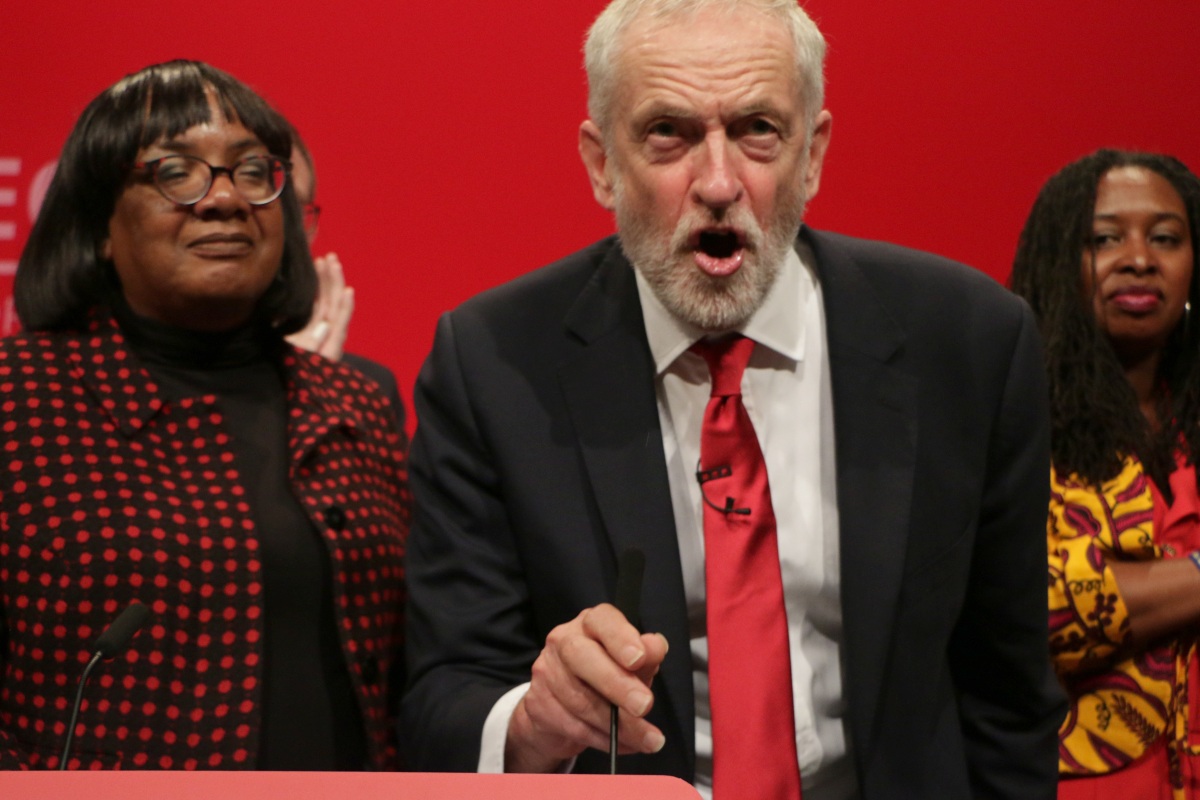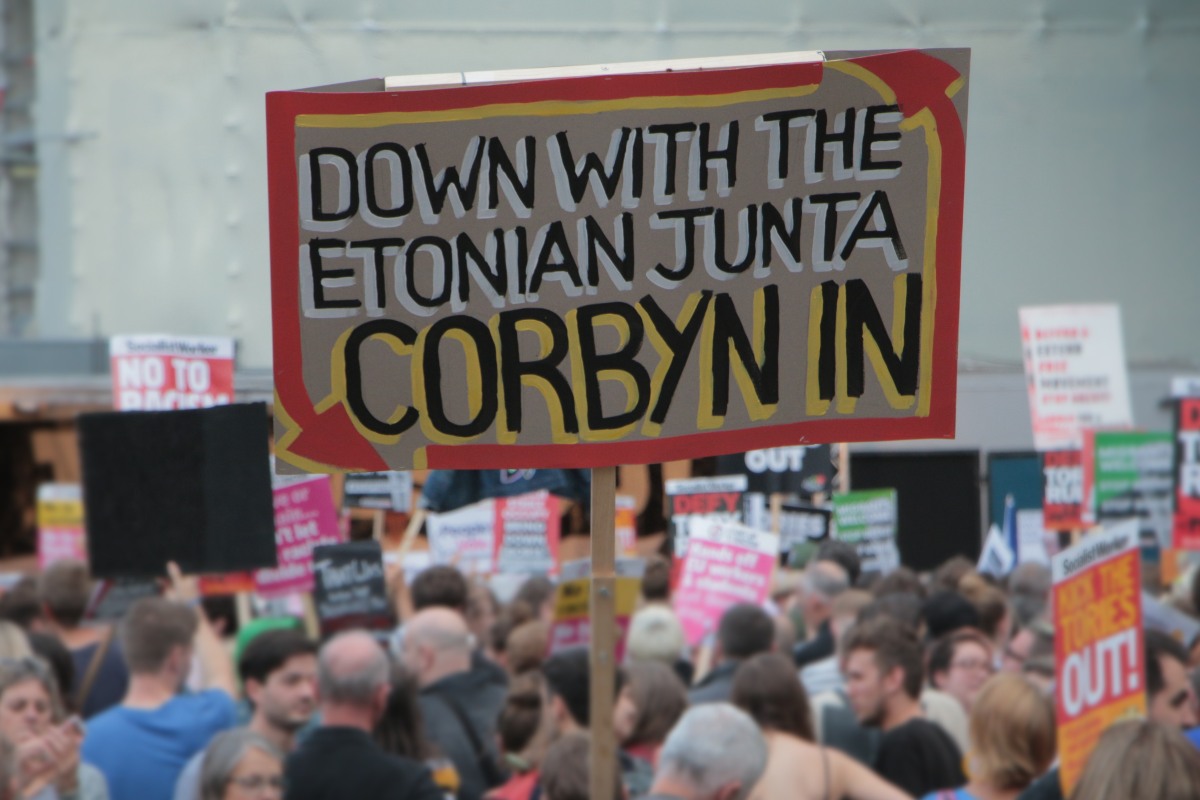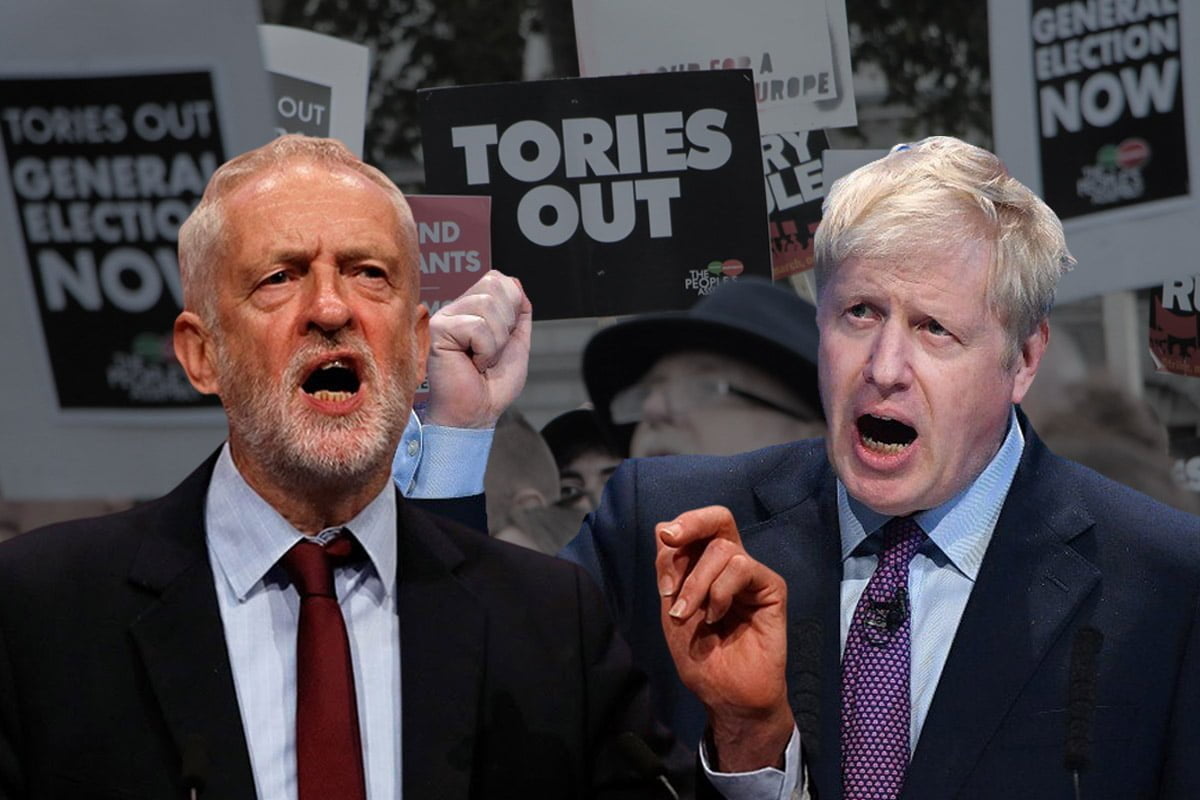Parliament is once again paralysed, as MPs debate whether or not to go for an early election. Both major parties are split over the question. But Labour has nothing to fear and everything to gain. General election now!
Splits and divisions have opened up at the top of the Tory government. Given the paralysis in Parliament, they don’t know which way to turn. Depending on what extension the EU offers, they are torn between trying to push Brexit through or going for a snap pre-Christmas general election.
Cabinet ministers – including Sajid Javid, Gavin Williamson, Dominic Raab, Priti Patel and Jacob Rees-Mogg – are among those urging the Prime Minister to go to the polls.
However, Julian Smith, the Northern Ireland Secretary, Andrea Leadsom, Nicky Morgan and Theresa Villiers are among ministers eager to pursue the deal through the Commons. They were buoyed by the fact that 19 Labour MPs voted in the second reading of the Withdrawal Bill. But their support is now far from guaranteed.
Tories
 They are hesitant to go for a general election. Victory in such an election is far from in the bag; the Tories could easily lose. Many in the Tory Party are rightly scarred by the experience of the 2017 election, when Theresa May hubristically called a snap election, only to throw away a 20 point lead in the polls and lose her government’s majority.
They are hesitant to go for a general election. Victory in such an election is far from in the bag; the Tories could easily lose. Many in the Tory Party are rightly scarred by the experience of the 2017 election, when Theresa May hubristically called a snap election, only to throw away a 20 point lead in the polls and lose her government’s majority.
But the more gung-ho types in the Tories are eager for battle. They have no such concerns and are more fearful that they could lose Brexit altogether.
“If we go into an election with a deal that has been agreed with the EU and approved in principle by Parliament we can say to the electorate ‘vote for us and Brexit will be done in days’,” stated one Conservative MP.
“The alternative would be a Jeremy Corbyn government that would delay Brexit for months to hold a referendum that could end up with Brexit being cancelled.”
These splits at the top have been reflected in the Tory ranks, who are fearful of the consequences.
“There’s a big, big fight going on, basically,” said another Tory MP. “The parliamentary party is split 50/50. Personally, I don’t think an election is a very good idea.”
Labour
 In any case, things are not so simple. It is far from certain Johnson could get enough Labour MPs to vote for an election, even if Jeremy Corbyn whips the Parliamentary Labour Party to back one.
In any case, things are not so simple. It is far from certain Johnson could get enough Labour MPs to vote for an election, even if Jeremy Corbyn whips the Parliamentary Labour Party to back one.
Corbyn is facing significant pressure from his own MPs to resist any calls from Downing Street for an immediate general election. This is despite saying previously that Labour would support an election as long as a no-deal Brexit was off the agenda.
There were reports in the Guardian earlier this week that up to 140 Labour MPs would defy the whip if Corbyn called for an election.
Recently there was an argument in the shadow cabinet over the timing of an election. Corbyn – who is clearly more in touch with the feelings of ordinary members – was in favour of an election once the EU had granted an extension. He was firmly supported by Dan Carden and Laura Pidcock, amongst others.
But the Labour leader was opposed by Keir Starmer, the shadow Brexit secretary, who preached caution and who has made his support for a second referendum well-known.
Corbyn was also supported in the discussion – which is said to have become fractious at times – by Ian Lavery and Jon Trickett. Lavery accused Starmer of “ramming this policy down my throat for 18 months”.
Blairites
The Blairites have openly opposed a general election due to fears not that the Tories will win, but that Jeremy Corbyn will win.
Blair said he would struggle to vote Labour in an election. The Labour right-wingers will do anything to sabotage a Corbyn-led Labour government. All they ever call for is a second referendum. Alison McGovern, a Labour MP, appeared on Newsnight and only argued for a second referendum.
These anti-Corbyn MPs are acting as a Fifth Column in the Labour Party. Their only aim is to undermine the Labour leadership and restore the party into the hands of the Blairites.
While some are facing trigger ballots, the majority are free to carry on with their exploits. But party democracy should mean that all our representatives are exposed to democratic accountability.
Reselection
 Back in 2016, when 80% of the Parliamentary Labour Party passed a motion of no confidence in Corbyn, Labour MPs forced him to stand again in a leadership contest. Corbyn should have made clear then that if he won, then all MPs would similarly have to face a reselection contest within three months.
Back in 2016, when 80% of the Parliamentary Labour Party passed a motion of no confidence in Corbyn, Labour MPs forced him to stand again in a leadership contest. Corbyn should have made clear then that if he won, then all MPs would similarly have to face a reselection contest within three months.
If Corbyn had to be re-elected for his position, then the rest should also face reselection. What is good enough for the goose should be good enough for the gander.
While that opportunity was missed, another opened up in 2018, when Labour conference could have passed a motion in support of open selection. But this was swept off the table by bureaucratic manoeuvres.
The left had a clear majority at the conference, and could have easily brought in this democratic reform. Instead, this stalled attempt to bring in genuine democratic accountability allowed the Blairite sabotage to continue unhindered. We are now paying the price for this mistake.
Uncertainty
 The majority of people want a general election. If Corbyn decided to go for an election, it would be unlikely that a backbench Labour rebellion could stop this. They would certainly feel the fire in their constituencies to support Corbyn in the face of a general election.
The majority of people want a general election. If Corbyn decided to go for an election, it would be unlikely that a backbench Labour rebellion could stop this. They would certainly feel the fire in their constituencies to support Corbyn in the face of a general election.
In any case, if the Tories came out in favour of an election, then with the SNP and Lib Dems on board, all it would take is for a third of the PLP to secure the 435 votes needed to trigger an election. This is the only way round the Fixed-Term Parliaments Act.
At the time of writing, things are still up in the air and the EU is yet to decide on an extension. The question of a pre-Christmas general election is still not certain.
To ensure a general election on 12 December – the date currently proposed by Boris Johnson – would require a successful vote in Parliament by 5 November. Any later announcement would push a general election into the New Year.
Offensive
 Whatever the date, Britain has entered a convulsive state. In an election, Boris Johnson would clearly be fighting a campaign on the basis of “The people versus Parliament” and “Get Brexit Done”.
Whatever the date, Britain has entered a convulsive state. In an election, Boris Johnson would clearly be fighting a campaign on the basis of “The people versus Parliament” and “Get Brexit Done”.
But Labour showed in 2017 that it can cut across the Brexit divide and turn things around by putting forward bold demands on class issues. Labour has everything to play for. If it pursues a fighting campaign with a radical manifesto, it can cut through the Brexit fog.
With over 500,000 members – together with the resources of the whole labour movement – it has the potential to transform the situation.
Labour should not hold back. It should go on the offensive. This is the only road to a Corbyn-led Labour government in the interests of working people. This is the only way to break the current logjam.






